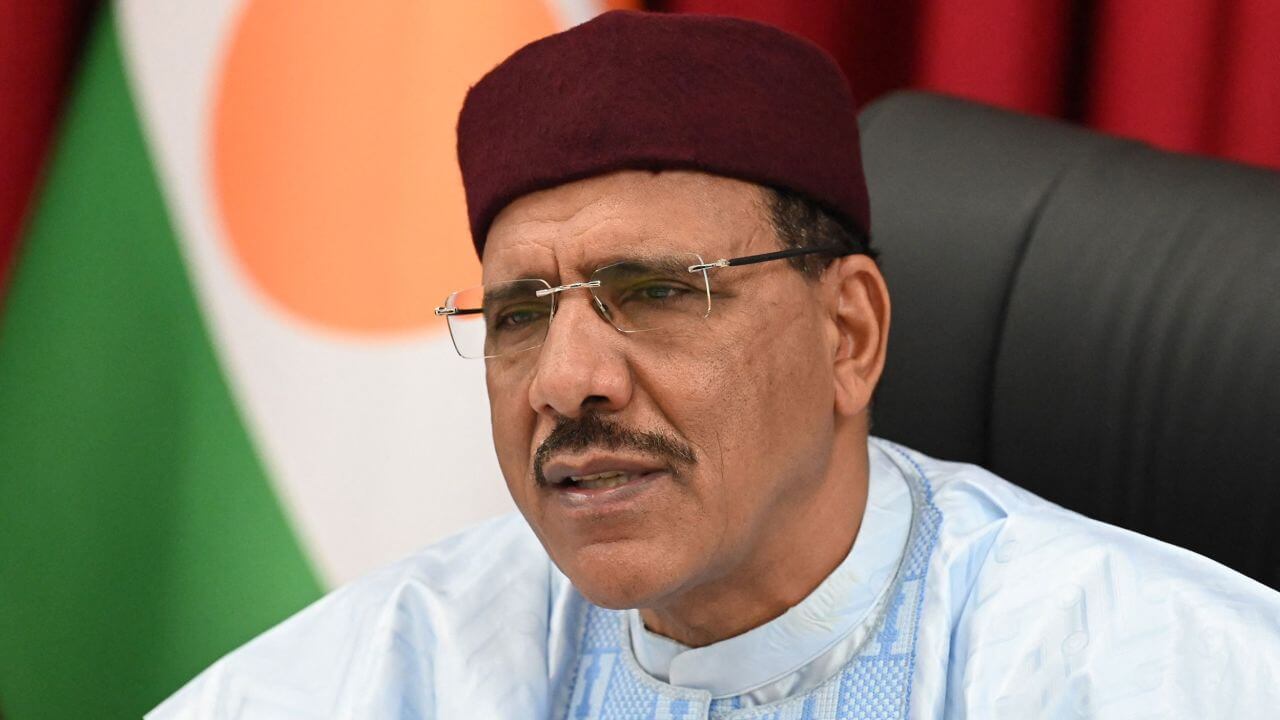Niger’s military junta intends to prosecute deposed President Mohamed Bazoum for “high treason” shortly after a group of leading Islamic scholars declared the country’s coup leaders are open to talks to end their impasse with West Africa’s regional union.
In a statement, the military of Niger accused Bazoum of “high treason” and “undermining the internal and external security” of the nation.
Treason Charges Against Bazoum
On state television Sunday night, the military government’s spokesman, Col. Maj. Amadou Abdramane, declared that the military had “gathered the necessary evidence to prosecute before competent national and international authorities the ousted president and his local and foreign accomplices for high treason and for undermining the internal and external security of Niger.”
According to Niger’s penal code, Bazoum might face a death sentence if found guilty.
As per the announcement, prominent leaders from West Africa and “their international mentors” had fabricated evidence and tried to thwart a diplomatic resolution of the problem to justify a military intervention. Bazoum was charged after meeting with these individuals. However, the announcement did not state a date for the trial or specify the Western nations involved.
The announcement was made just hours after a delegation of Nigerian Islamic clerics said that they had met with Abdourahamane Tchiani, the leader of the Niger coup in Niamey, and that the general had agreed to conduct “direct talks” with the Economic Community of West African States (ECOWAS).
Background
Bazoum, the democratically elected president of Niger, was overthrown by members of his presidential guard on 26 July. Since then, he has been under house arrest in the presidential complex in the nation’s capital, Niamey, with his wife and son.
Meanwhile, the West African bloc has directly deployed a “standby force” to restore democracy in Niger after its deadline for reinstating Bazoum expired. Notably, after deposing the existing democratically elected government president, Tchiani was named as head of the National Council for the Safeguard of the Homeland (CNSP).
The CNSP is a government organisation, formed by the troops following the coup, which has legislative and executive authority. According to the new group, Bazoum was deposed owing to “the continued deterioration of the security situation” and “poor economic and social governance” in the country.
Niger's military junta are to prosecute deposed President Bazoum for "high treason", a month after toppling his government in a coup. The army claims to have evidence against Bazoum and his "local and foreign accomplices". Bazoum remains under house arrest. pic.twitter.com/tfxW5zx4oM
— BBC News Africa (@BBCAfrica) August 14, 2023
ECOWAS Sanctions and Threats of Force
Following the coup, West African nations imposed sanctions on Niger and threatened to use force if President Bazoum was not reinstated within a week.
ECOWAS declared the closure of land and air borders and suspended all economic and financial activities between ECOWAS countries and Niger.
The bloc also announced the suspension of the Republic of Niger’s assets in ECOWAS central banks and a travel restriction and asset freeze for military leaders involved in the coup attempt.
Niger Coup
The coup in Niger was the culmination of months of dispute between President Bazoum and his chief military guard over the leader’s efforts to emerge from his predecessor’s shadow.
Bazoum had boosted military ties with France and the US since attaining power, reduced the authority of Nigerian army leaders, and undertaken anti-corruption operations.
He was usurped and taken into custody by members of Nigeria’s presidential guard at the end of July. The chief of Niger’s presidential guard, Gen. Tchiani, subsequently appointed himself the leader of a transitional government.

